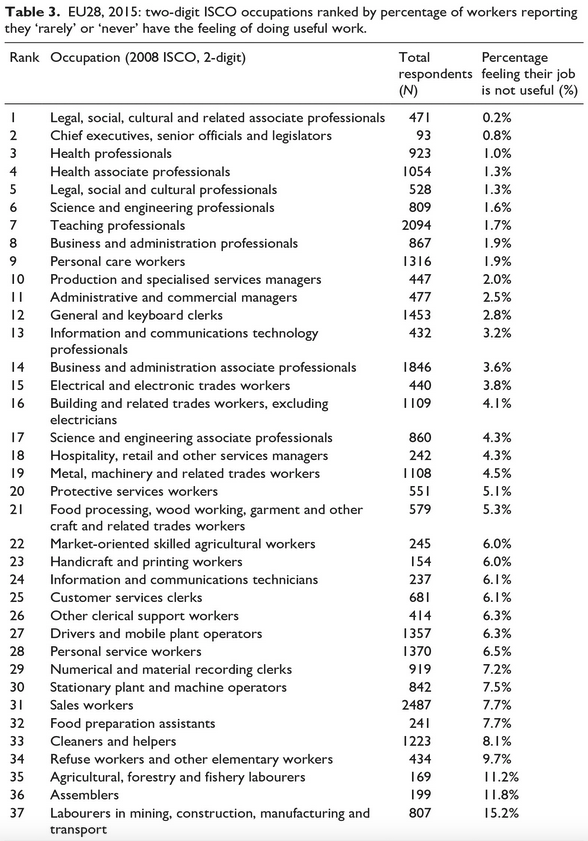In June 2021, researchers in the United Kingdom published a study largely refuting the concept of “bullshit jobs” launched by the late David Graeber in a 2013 essay, followed by a book in 2018, and which has been floating around in the news ever since as if it were a truism or a proven fact. Not so fast, said the authors of the paper, Alienation Is Not ‘Bullshit’: An Empirical Critique of Graeber’s Theory of BS Jobs.
Let’s take the story from the beginning. In 2013, anthropologist David Graeber dropped a small bomb on the “HR” world with the essay On the Phenomenon of Bullshit Jobs. His reflection is the following: with the constant improvement of the means of production, he wonders why most of society has not entered the leisure society announced by John Maynard Keynes (1930) or Joffre Dumazedier (1960).
We’ve seen the creation of a wide variety of jobs and industries since the 1920s, but very few of them have anything to do with the production and distribution of sushi, iPhones or fashionable sneakers,” notes David Graeber.
In the West, new jobs are rarely related to the production of our consumer goods. Instead, the anthropologist notes a proliferation of jobs in finance, management, marketing, and human resources, which he says do not add value to society. This is what he calls “bullshit jobs”.
It’s as if someone is inventing useless jobs, for the sole purpose of keeping us all working.”
David Graeber echoed this in a book published in 2018, where he clarifies his thesis with statistics from the government agency YouGov in the UK. He then argues that jobs “that aren’t” cause those who hold them to lack meaning. Administrative and management staff, as well as people working in finance and marketing, are more likely to say they don’t understand the meaning or purpose of their jobs. This is in contrast to people who do “really useful” but often devalued jobs, such as teachers and nurses.
In 2021, a group of researchers from Cambridge and Birmingham universities in the UK tested the robustness of his theory by cross-checking five of his claims. Here are the three most important ones.
CLAIM 1: The number of employees who say their job is useless is higher than ever (20-50%)
FALSE – This range of numbers is contradicted by a study by Dur and Lent (2019), showing that only 8% of workers find their jobs “not useful to society.”
CLAIM 2: Employment sectors associated with “white collar” workers have really high rates of “bullshit jobs” (e.g., finance, marketing, and administration) and those of “blue collar” workers would be very low (e.g., garbage workers, farmers, janitors).
FALSE: In fact, a compilation by UK researchers shows the opposite:

Source: Alienation Is Not ‘Bullshit’: An Empirical Critique of Graeber’s Theory of BS Jobs.
CLAIM 3 – Unnecessary jobs are a source of “spiritual violence” and “poor well-being”.
TRUE: Despite the fact that the rate of “bullshit jobs” is significantly lower than Graeber claims, researchers in the UK agree that a perceived lack of meaning or purpose at work is strongly linked to poor psychological well-being.
This puts Graeber’s theory into perspective!




